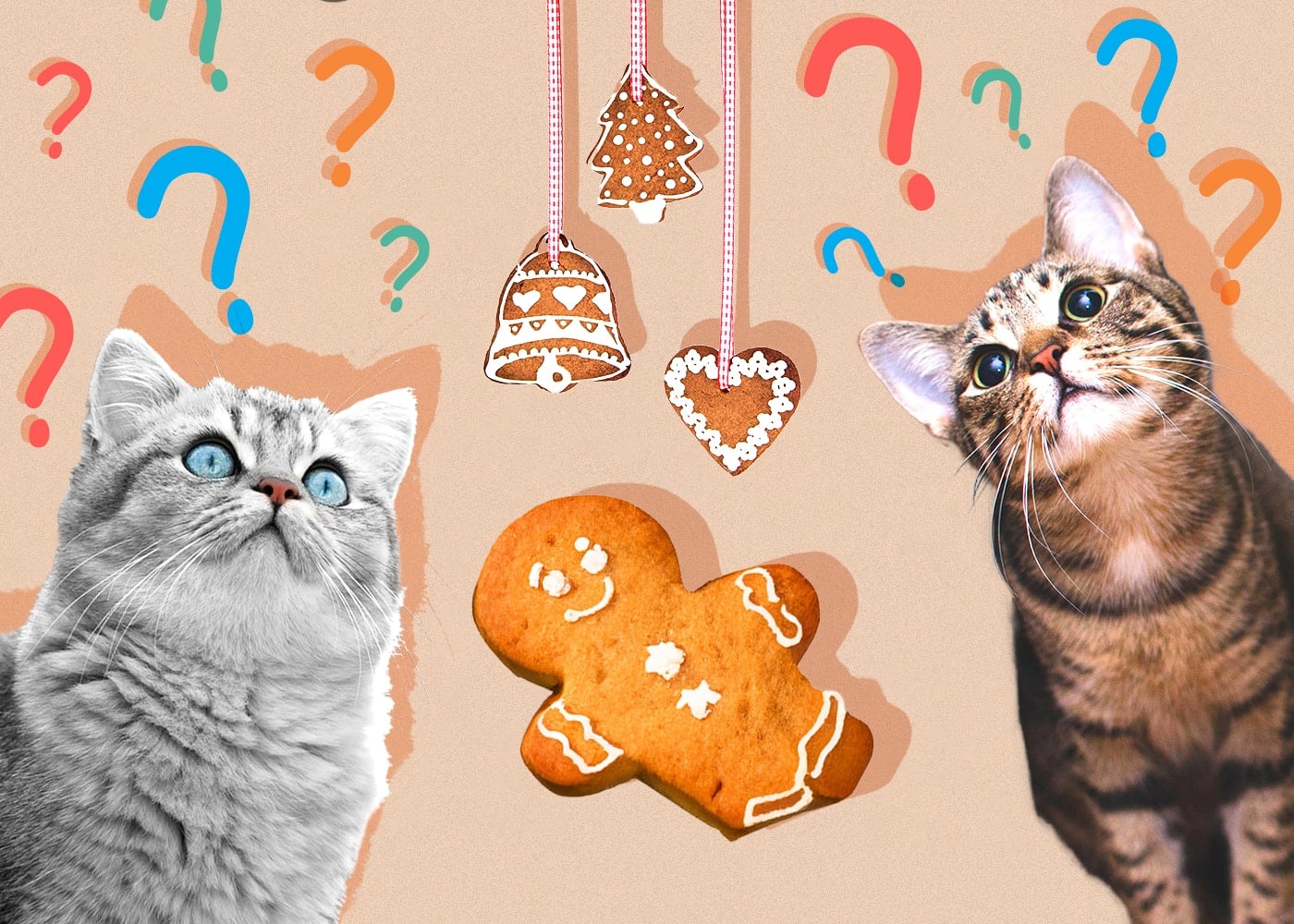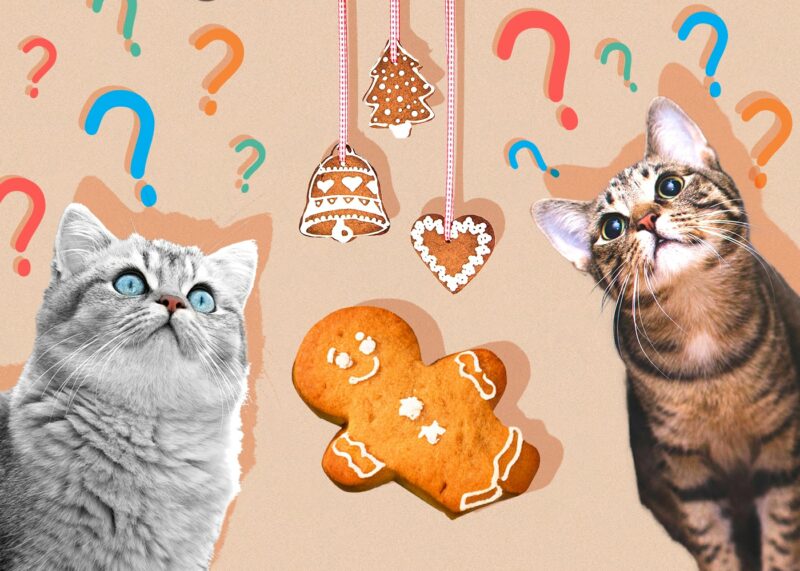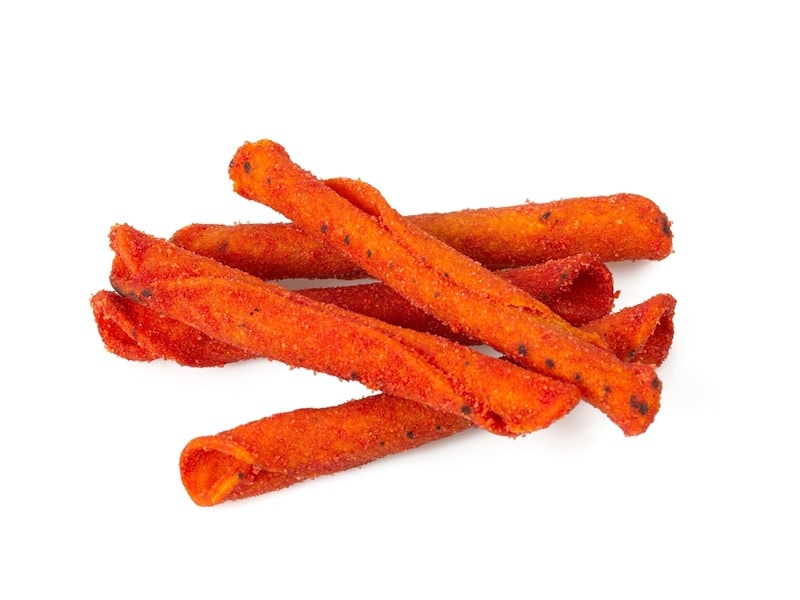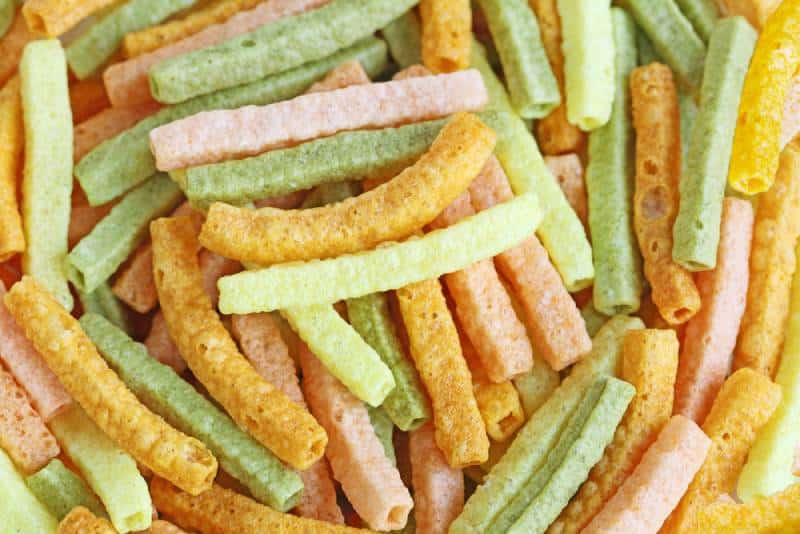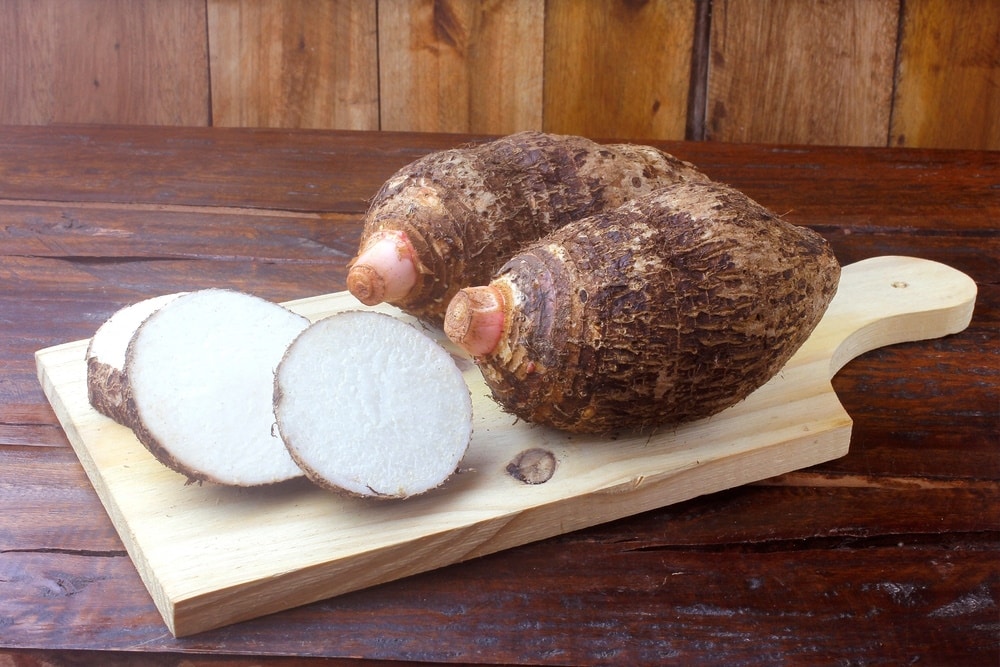Gingerbread is a tasty holiday treat that people around the world enjoy. The sweetness and the zing of ginger produce a unique flavor profile. Unsurprisingly, you might want to share some gingerbread with your cat!
Not only does gingerbread taste great, but it’s also a holiday tradition for many people. Why wouldn’t we want to share it with our cats? And although a small bite may not be toxic, there is more that you should know and the answer may surprise you!
Can Cats Eat Gingerbread?
Occasionally, a small bite of gingerbread or gingerbread cookies is unlikely to be a problem for your cat. However, gingerbread contains several unhealthy ingredients, and depending on the recipe, it can contain harmful ones. Ideally, your cat should not be given gingerbread, but if some drops on the floor or your child feeds a bite or two to the cat, there is little cause for concern.
If you’re unsure about the safety of how much gingerbread your cat consumes, speak to your veterinarian and take your cat to the clinic immediately if they display concerning signs.
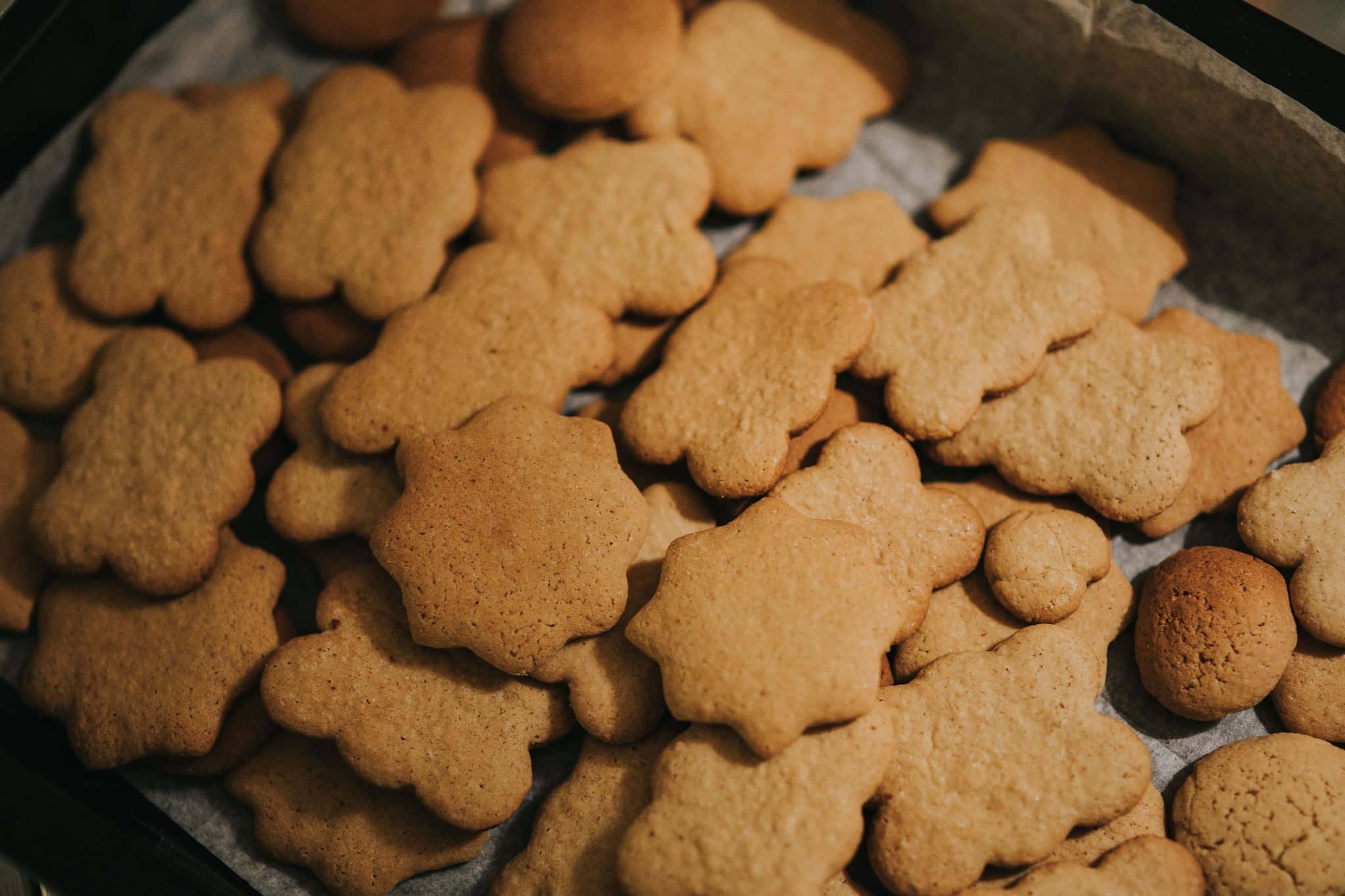
Nutmeg Toxicity in Cats
Gingerbread contains nutmeg, which can be toxic to cats. Nutmeg is unlikely to cause little more than stomach upset in small quantities. This is the most likely issue you’ll see since nutmeg makes up a very small amount of the recipe. In large quantities, however, nutmeg can be deadly to your cat.
It contains myristicin, which is a deliriant toxin for cats. it can lead to seizures, hallucinations, confusion and disorientation, increased heart rate, abdominal pain, dry mouth, and high blood pressure. The symptoms of nutmeg or myristicin toxicity can last up to 48 hours and require veterinary intervention to treat.
Clove Toxicity in Cats
Cloves are another gingerbread ingredient that contains a toxin called eugenol. Eugenol can lead to liver toxicity in cats in large quantities. Like nutmeg, the amount present in a gingerbread recipe is unlikely to cause issues for your cat since clove toxicity generally occurs from eating whole cloves or clove oil.
Eugenol toxicity can lead to vomiting, seizures, tremors, and a staggering gait in cats, but we could find no studies about clove toxicity in cats. It is best to err on the side of caution and avoid cloves.

Why Cats Don’t Need Sugary Foods
Cats are obligate carnivores, and they need animal protein to survive. They require a large amount of animal protein and a moderate amount of fat in their commercial cat food. However, cats cannot convert carbohydrates into energy as easily as fat and protein, and it’s best to serve brands with minimal carbs. To top that off, they require very little in the way of sugars and don’t need sucrose in their diet.
A cat’s regular diet should consist primarily of protein-based foods, and treats should also be high in protein and low in carbohydrates, especially sugar. Ideally, you should avoid giving your cat table scraps, including gingerbread and other sweets. Commercial cat treats are a great way to treat your cat without risking dietary problems.
You can also serve small pieces of plain meat, like boiled or roasted chicken, turkey, or beef, as long as they are prepared with no added salt, oil, or spices. You can also offer bite-sized quantities of dairy products, like plain yogurt and cheese, if they are not lactose intolerant as most adult cats are.
In Conclusion
Gingerbread is unlikely to cause harm to your cat in small amounts, so a bite or two isn’t risky. However, gingerbread contains some ingredients that are not healthy for your cat, and the clove and nutmeg can cause toxicity in your cat. Although less likely to cause issues, the cinnamon and allspice in gingerbread can also lead to adverse reactions in cats. s.
You can offer your cat safer and healthier treats, like plain lean meats. You should avoid high-sugar foods for your cat, especially ones high in processed sugar. Cats don’t require processed sugars in their diet, and it can lead to problems like obesity if they consistently eat more calories than they require. To maintain your cat’s health, serve nutritious commercial food and healthy treats and keep them away from sweets and most human cuisine.
- Related Read: Can Cats Eat Ginger?

